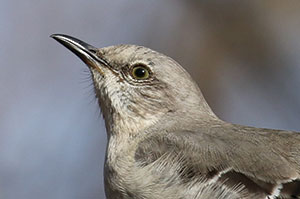Native Legends: Mockingbird Gives Out the Songs
Opinion Advocates for ideas and draws conclusions based on the author/producer’s interpretation of facts and data.
 By Brian Kluepfel
By Brian Kluepfel
In his 1970 book “People of the Short Blue Corn: Tales and Legends of the Hopi Indians,” Harold Courlander includes the myth from the Southwest about how many of the birds received their calls.
The legend of Yaalpa, the mockingbird, is as instructive of human nature as it is useful in learning some common bird calls.
According to Courlander, the mockingbird had many songs – it’s known among birders as the most melodious and vocal of birds – and had even given language to different human tribes, like the Apache and Hopi.
It then decided all its bird brethren, too, deserved individual voices. Thus, it called forth the dove, the red-tailed hawk, the owl and the rock hen. Each was given a distinctive call, and happily went on its way.

Last was the gray catbird, which somewhat resembles the mockingbird. When Yaalpa offered to give the catbird a voice, the latter responded in the negative: Mockingbird, it said, annoyed all the other animals with its constant chattering. No, said the catbird, I prefer no call at all.
“Every bird should have its call,” the mockingbird said.
“In this case, it is different,” the catbird answered. “From what I have seen, you are not very popular with the other birds. You are talking all the time. Too much talking drives people away. Did you notice how the birds left the meeting as soon as they could? They avoid you. You talk too much. I would rather not have language. If I talk, the other birds may think I am you.”
Thus, the catbird, familiar denizen of lakeside shrubbery, has few sounds other than its unique cat-like “mew.” Not everybody has to stand out in the crowd. Not everyone has to run their mouth constantly to be effective.
Perhaps it would behoove us to know the lesson of the catbird – silent but smart.
Postscript: Harold Courlander wrote 35 books during a well-traveled life, and famously won $650,000 in an out-of-court settlement when it was proved that several passages of his novel, “The African” were used by Alex Haley in his seminal work “Roots.”
Brian Kluepfel is a longstanding Saw Mill River Audubon member and encourages you to support efforts in protecting and enjoying local wildlife habitats. Visit SMRA sanctuaries and attend their events online or in person. All are welcome.

Examiner Media – Keeping you informed with professionally-reported local news, features, and sports coverage.

